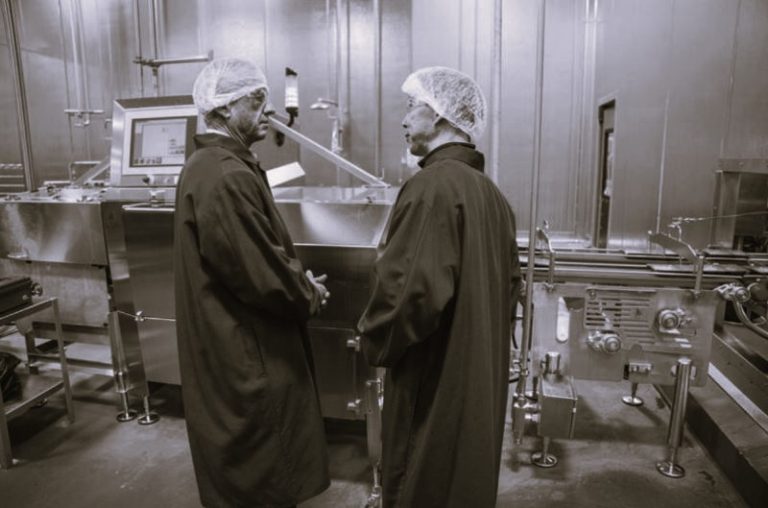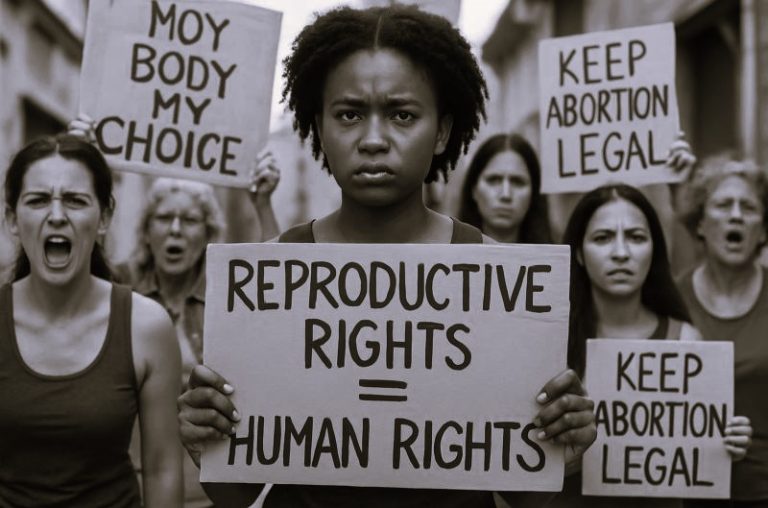About Margaret Riley
Biography
- Professor of Law, General Faculty
- Professor of Public Health Sciences, School of Medicine
- Professor of Public Policy, Batten School of Leadership and Public Policy
- Director, Animal Law Program
Margaret (Mimi) Foster Riley teaches food and drug law, health law, animal law, bioethics, regulation of clinical research and public health law.
Riley has written and presented extensively about health care law, biomedical research, genetics, reproductive technologies, stem cell research, animal biotechnology, health disparities and chronic disease. She serves as chair of UVA’s Embryonic Stem Cell Research Oversight Committee and as legal advisor to the Health Sciences Institutional Review Board, which is responsible for reviewing all human subject research at UVA involving medically invasive procedures. She served on the National Research Council Committee on Revisions to the Common Rule for the Protection of Human Subjects and has advised numerous committees of the Institute of Medicine and the Virginia Bar.
Before coming to Virginia, Riley was an associate with Pepper Hamilton & Scheetz in Philadelphia, where she worked primarily in complex securities, commercial and mass tort litigation. Prior to that position, she was a litigation associate with Rogers & Wells in New York. Riley received her law degree from Columbia University and her bachelor of arts from Duke University.
Publications
- “CRISPR Creations and Human Rights,” 11 Law & Ethics Hum. Rts. 225 (2017).
- “Implementing a Public Health Perspective in FDA Drug Regulation” (with Aaron S. Kesselheim and Patricia J. Zettler), 73 Food & Drug L. J. 221 (2018).
SSRN | HeinOnline (PDF) - “FDA’s Pathway for Regulation of FMT: Not So Fraught” (with Bernat Olle), 2 J.L. & Biosci. 742 (2015).
- “Twenty-First Century Technology with Twentieth-Century Baggage: FDA Regulation of Regenerative Medicine,” in Holly Fernandez Lynch & I. Glenn Cohen, eds., FDA in the Twenty-First Century: The Challenges of Regulating Drugs and New Technologies 455 (Columbia University Press, 2015).
- “An Unfulfilled Promise: Changes Needed to the Drug Approval Process to Make Personalized Medicine a Reality,” 70 Food & Drug L.J. 289 (2015).
HeinOnline (PDF) - “Whole-Genome Sequencing in Outbreak Analysis” (with others), 29 Clinical Microbiology Rev. 541 (2015).
- Proposed Revisions to the Common Rule for the Protection of Human Subjects in the Behavioral and Social Sciences (with others) (National Academies Press, 2014).
- “FDA Regulation of Antibiotic Use in Agricultural Animals,” Jurist, May 26, 2012.
- “In Plain Sight: A Solution to a Fundamental Challenge in Human Research” (with Lois Shepherd), 40 J.L. Med. & Ethics 970 (2012).
SSRN - “Federal Funding and the Institutional Evolution of Federal Regulation of Biomedical Research,” 5 Harv. L. & Pol’y Rev. 265 (2011).
HeinOnline (PDF) - “How Should Ethics Affect FDA Regulation Of Genetically Engineered Animals?” Food & Drug Pol’y F., Vol. 1, No. 15 (August 2011).
- “Regulating Reproductive Genetics: A Review of American Bioethics Commissions and Comparison to the British Human Fertilisation and Embyology Authority” (with Richard Merrill), 6 Colum. Sci. & Tech. L. Rev. (2005).
Journal - “A Critique of Human Cloning and Human Dignity: The Report of the President’s Council on Bioethics,” 20 J.L. & Pol. 463 (2004).
HeinOnline (PDF)
Media
- 07/26/2021: What Is the HIPAA Privacy Rule? A Health Law Scholar Explains (The Conversation)
- 06/22/2021: Anti-Vax Group Mounts Legal Blitz To Sow Disinformation Against Vaccinations (The Guardian)
- 05/25/2021: Fact Check: Federal Law Does Not Prevent States, Businesses, Employers From Requiring COVID-19 Vaccines (USA Today)
- 05/25/2021: Can Businesses Ask Proof of COVID-19 Vaccination? Experts Explain HIPAA (Fox Business)
- 05/21/2021: VERIFY: Yes, Businesses Can Require Unvaccinated Customers To Wear Masks Even If There Are No Mandates (WUSA)
- 05/17/2021: Professor: ‘Unlikely’ Businesses Will Demand Proof of Vaccine (CBS6)
- 05/14/2021: People, Businesses in Charlottesville Navigate Through Confusion of New (Un)masking Guidance (NBC29)
- 01/27/2021: Can Biden Fix the Vaccine Mess? An Expert Says Yes (The Conversation)
- 01/22/2021: The Biden Administration Inherits the Covid-19 Crisis (Miller Center of Public Affairs)
- 12/01/2020: New HHS Policy Requires All Information to Be Released for Upcoming Rules (Government Executive)
- 11/16/2020: The Costs of Delay (Miller Center of Public Affairs)
- 11/09/2020: Biden Presses Ahead (Miller Center of Public Affairs)
- 11/05/2020: The Day After the Day After (Miller Center of Public Affairs)
- 11/05/2020: The Day After the Day After (Miller Center of Public Affairs)
- 10/15/2020: What Is HIPAA? 5 Questions Answered About the Medical Privacy Law that Protects Trump’s Test Results and Yours (The Conversation)
- 06/04/2020: The Internet of Bodies Is Here. This Is How It Could Change Our Lives (World Economic Forum)
- 11/13/2019: Google Sparks New Privacy Fears Over Health Care Data (The Hill)
- 10/22/2018: Ryan Establishes Committee To Facilitate Strategic Plan for UVA (UVA Today)
- 03/29/2018: President-Elect Ryan Appoints Search Committees for Provost, COO (UVA Today)
- 08/18/2017: Revisit NIH biosafety guidelines (Science Mag)
- 03/27/2017: UVA Anesthesiologist Faces $75,000 Malpractice Suit (The Cavalier Daily)
- 01/03/2017: Law Profs Examine 8 Legal Landmarks of 2016, and What They May Mean in 2017 (UVA Today)
- 06/16/2016: Hazel: Jail Inmate Died Within 24 Hours of Admission to State Hospital (Richmond Times-Dispatch)
- 06/04/2016: Trigger Warning: UVA Prof Weighs in on Gorilla Shot at Zoo (C’ville)
- 03/28/2016: Pig Farming: Addressing Environmental, Medical & Ethical Concerns (WVTF)
- 06/17/2015: With Obamacare in Peril at Court, Government Offers Scant Relief (Bloomberg Business)
- 05/23/2015: Four Whisleblowers Prompted HDL Investigation (Richmond Times-Dispatch)
- 12/05/2014: Does ACA Give Incentive to Hire Immigrants? (FactCheck.org)
- 12/02/2014: Does Obamacare Give Businesses a $3,000 Incentive to Hire Illegal Immigrants? (PolitiFact)
- 10/30/2014: Ebola Goes to Court (Slate)
- 07/03/2014: Senator’s Obamacare Suit Faces Long Odds, Scholars Say (USA Today)
- 06/28/2012: Health Advocates React to Supreme Court Health Care Ruling (NBC 29)
- 06/28/2012: Local, UVa Experts: Health Care Law Will Still Take Years to Implement; The Already Insured Won’t See Much Change (The Daily Progress)
- 05/29/2012: FDA Regulation of Antibiotic Use in Agricultural Animals (Author) (Jurist)
- 03/26/2012: Health Care Reform Opponents, Supporters Rally in Charlottesville (NBC 29)
- 05/10/2010: Stopping Animal Biotech in U.S. Won’t Stop It Elsewhere, BIO Told (Food Chemical News)
- 03/08/2010: Reinventing Life (UVA Magazine)
- 12/15/2009: 135,000 Uninsured Americans Will Die Before Health Reform Takes Effect, Analysis Finds (The Raw Story)
- 11/09/2009: UVA Law Class Exploring Animal Law Issues (NBC 29)
- 11/06/2009: UVA Seminar Focuses on Animal Law (Charlottesville Daily Progress)
- 05/25/2009: GE Animal Developers Urged to Engage Critics on Ethical Issues (Food Chemical News)
- 03/09/2009: UVa Researchers Happy About Funding for Stem Cell Research (WCAV)
- 01/14/2009: Barker Grant Aids U.Va. Animal Law Program (Richmond Times-Dispatch)
- 01/14/2009: Barker’s Gift to Found Animal Law Program (Charlottesville Daily Progress)
- 11/12/2007: Lawyers Dispute Patents on Animals and Plants (Duke Chronicle (NC))
- 12/14/2006: Support for Stem-Cell Study Falls, Poll Shows (Richmond Times-Dispatch)
- 04/11/2005: The Write Stuff (U.S. News & World Report)
AT UVA Law
- Mandatory Vaccinations: Law, Ethics and Religious Liberties
- Harnessing Science That Keeps You Up at Night
- Faculty Focus: Administrative Law
- Insights on Teaching From an Exchange With Germany
- The Legal Landmarks of 2016
- Insight From the Trenches: 7 J-Term Courses That Pair Outside Experts with UVA Law Professors
- “The Future of Medicine,” with Professor Mimi Riley
- King v. Burwell and the future of Obamacare
- Bring Back the Woolly Mammoth? UVA Law Professor Weighs Ethical, Legal Implications of Cloning Long-Lost Species
- UVA Law Professors Analyze Supreme Court Decision in Gene-Patenting Case
- Law Professors Seek to End Common Conflict of Interest in Clinical Research
- At Annual Supreme Court Roundup, UVA Law Professors Explain Health Care, Immigration Decisions
- Ahead of Supreme Court Roundup, Howard Discusses Emerging Picture of the Roberts Court
- Health Law at the University of Virginia School of Law
- UVA Law Professors React to Supreme Court Health Care, Stolen Valor Rulings
- “The President’s Contraception Mandate: A Basic Necessity or a Violation of Religious Liberty?”
- Media Advisory: Law Professors Available to Speak About Health Care Reform, Potential Supreme Court Showdown
- Professor Margaret Foster Riley Discusses Animal Law Course
What Is the HIPAA Privacy Rule?

By Margaret Foster Riley, J.D.
Professor of Law, Public Health Sciences, and Public Policy
University of Virginia
Overview
The Health Insurance Portability and Accountability Act’s Privacy Rule is a federal law prohibiting health care providers, businesses and the people working with them – including administrative staff, laboratories, pharmacies, health insurers and so on – from disclosing your health information without your permission.
When people talk about HIPAA, they typically refer to the Privacy Rule provision established in 2003, which is just one part of a broader law initially passed by Congress in 1996. The Privacy Rule came into force after tennis star Arthur Ashe’s HIV status was publicly revealed and country music star Tammy Wynette’s health records were sold to tabloids. People were starting to worry about genetic privacy. And Congress recognized that the internet would make it easier for health care privacy breaches to occur.
Why the HIPAA Privacy Rule Matters
The HIPAA Privacy Rule gives you the right to control your health information disclosures so you can tell your health care provider what to share. If you don’t want to share some of your health information with your family members, you can tell your health care provider to withhold that information from them.
However, HIPAA only protects health care information held by specific kinds of health care providers. For example, health care data on your Apple Watch or Fitbit is not usually covered by HIPAA. Genetic data you enter on websites like Ancestry.com is also not covered by HIPAA. Other laws or agreements like the privacy disclosures required on many apps may protect that information, but HIPAA does not.
Sometimes people try to use HIPAA as an excuse for actions it doesn’t actually cover. For instance, some people who refused to comply with coronavirus-related mask rules in stores asserted that they couldn’t be asked to explain why because of HIPAA protections. But that’s not how this privacy law works: It’s legal for someone to ask you about your vaccination status. And anyone can provide information about their own vaccination status (or any personal health information) without violating HIPAA.
Are There Exceptions to the HIPAA Privacy Rule?
“Your first question is a violation of my HIPAA rights.” https://t.co/sNhdIxtTX7
— HuffPost (@HuffPost) July 21, 2021
Certain exceptions to HIPAA’s nondisclosure requirements allow covered health care providers to disclose patient information to help treat another person, protect public health and aid in certain law enforcement investigations.
During a pandemic, for instance, public health departments can provide information about how many people have tested positive for a disease, but they cannot mention specific names to the general public unless it’s necessary to alert particular people that they may have been exposed. This is because HIPAA and other privacy laws require them not to release any more information than is needed to keep people safe.
Biography and publications information from Riley’s profile page at University of Virginia. Article “What Is the HIPAA Privacy Rule?” originally published by The Conversation, 12.14.2021, under the terms of a Creative Commons Attribution/No derivatives license.








